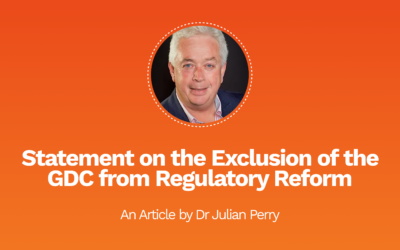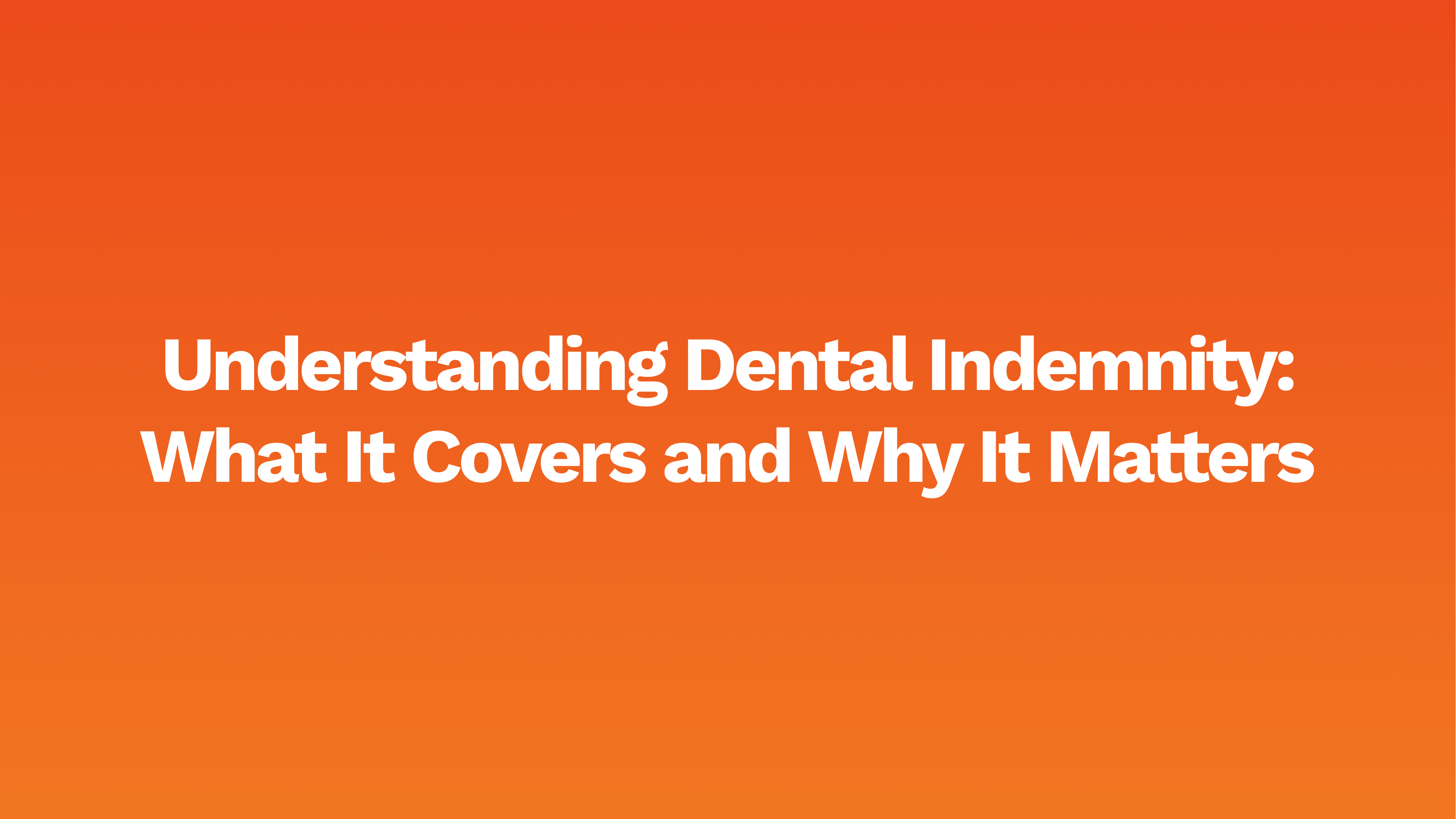Indemnity insurance, including dental indemnity insurance, plays a crucial role in protecting professionals from financial and legal risks. For dental professionals, having appropriate indemnity cover is not just advisable—it’s a legal requirement. According to the General Dental Council (GDC), all practising dentists must have indemnity or insurance in place to ensure that patients can obtain compensation if something goes wrong.
While the benefits of indemnity insurance, such as financial protection, legal defence, and peace of mind, are well-documented, there are certain disadvantages that professionals should consider. In this blog, we’ll explore these drawbacks while emphasising the role of Densura as a reliable provider of dental indemnity insurance.
1. Cost of Premiums
One of the most significant disadvantages of indemnity insurance is the cost of premiums. Depending on the nature of the practice, the level of risk involved, and the amount of coverage required, premiums can be quite high. For dental professionals, this cost can be particularly burdensome, especially for those just starting their careers or operating smaller practices.
However, it’s worth noting that the cost of not having insurance is far greater. Without indemnity cover, dentists would be personally liable for legal fees, compensation payouts, and other costs, which could lead to financial ruin. Densura offers competitively priced policies to ensure that dentists get comprehensive protection without breaking the bank.
2. Exclusions and Limitations
No insurance policy covers every possible scenario, and indemnity insurance is no exception. Policies often come with exclusions and limitations that can leave professionals vulnerable in certain situations. For instance:
- Some policies may not cover claims arising from intentional misconduct or fraud.
- There may be limits on the amount of compensation or legal fees covered.
- Certain procedures or treatments might require additional coverage.
Dental professionals should carefully review the terms of their policies to ensure they are adequately protected. Densura provides clear and transparent policy terms, so dentists know exactly what is covered and can avoid unpleasant surprises.
3. The Claims Process Can Be Lengthy
While indemnity insurance is designed to provide support in the event of a claim, the claims process itself can be time-consuming and stressful. Gathering evidence, liaising with insurers, and navigating legal procedures can take time, delaying resolution and potentially disrupting a dentist’s practice.
To minimise these challenges, Densura ensures that claims are handled swiftly and professionally. With their dedicated team of 12 Dental Advisors and an inhouse legal team, we work closely with dentists to streamline the process and provide timely support.
4. Potential for Increased Premiums After a Claim
Making a claim on an indemnity policy can sometimes result in higher premiums in the future. Insurers may view claims as a sign of increased risk, leading to higher renewal costs. For dental professionals who have faced multiple claims, this can make indemnity insurance even more expensive.
However, choosing a provider like Densura can help. Their policies are designed to balance comprehensive protection with competitive pricing, ensuring that dentists receive fair terms even after making a claim.
5. No Coverage for Unreported Claims
Some indemnity policies operate on a claims-made basis, meaning that claims must be reported during the policy period to be covered. If a dentist switches insurers or fails to renew their policy, they may lose coverage for incidents that occurred previously but were not reported.
Densura’s offers “occurrence based” meaning that you will be covered even if the notification is in regard to a previous year provided Densura were your indemnity provider at that time.
6. Dependence on the Insurer’s Support
While indemnity insurance provides legal defence and compensation, professionals are reliant on their insurer to deliver this support. If an insurer is slow to respond, unhelpful, or unclear in their terms, it can add stress to an already difficult situation.
This is why choosing a trusted provider like Densura is crucial. Densura offers non-discretionary cover, meaning they are legally obligated to provide support as outlined in the policy, ensuring dentists can rely on them in times of need.
Why Indemnity Insurance Is Still Essential
Despite these disadvantages, indemnity insurance remains a vital safeguard for dental professionals. It is not only a legal requirement but also a necessary tool for managing risk and protecting a dentist’s career, reputation, and financial stability.
Indemnity insurance ensures that patients have access to compensation if something goes wrong, maintaining trust in the dental profession. Densura address many of the common concerns associated with indemnity insurance by offering clear terms, competitive pricing, and responsive support.
By choosing Densura, dental professionals can mitigate many of the disadvantages associated with indemnity insurance. With transparent policies, competitive pricing, and a commitment to supporting dentists in challenging times, Densura ensures that you can focus on what matters most: providing excellent patient care. If you have any concerns about how this guidance impacts your practice, don’t hesitate to reach out, your role in safeguarding patient care is invaluable, and we’re here to provide the support and protection you need.



